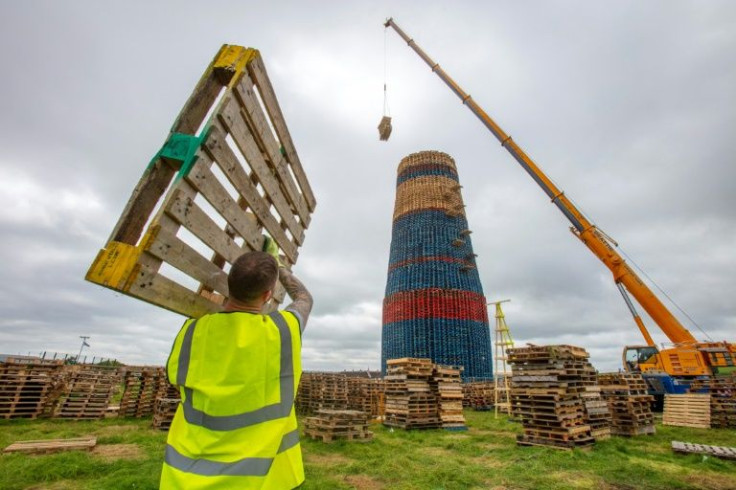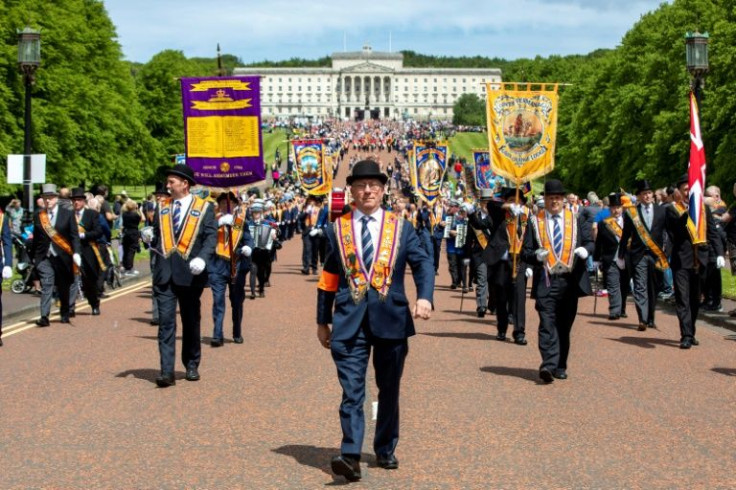Northern Ireland's Unionists Parade Amid Political Uncertainty
Northern Ireland's unionists will parade in their thousands on Tuesday to celebrate the culmination of the pro-UK community's "arching season", as the restive province wrestles with political crisis.
The July 12 "Orange Order" parades, which have long been a flashpoint for sectarian tensions, come with Northern Ireland in its third month without a functioning government following May elections.
In London, the resignation as Conservative leader of Prime Minister Boris Johnson has created further instability, as candidates bidding to succeed him stake out positions on post-Brexit trading rules for the territory.
Across Northern Ireland late on Monday, more than 250 bonfires were lit in unionist communities to kick off festivities.
The fires, often created by stacking palates into towering structures, have grown in size over the decades.

Builders in the port town of Larne are hoping to set a world record with a 200-foot (60-metre) blaze.
On Saturday a man in his 30s was killed when he fell from another bonfire more than 50 feet tall in Larne. The pyre was subsequently dismantled.
The structures and parades by Orange Order members commemorate the victory of Protestant king William III of Orange over the deposed Catholic king James II at the Battle of the Boyne in 1690.
Throughout Tuesday there will be 573 Orange Order parades, 33 of which pass through Catholic areas where tensions could boil over.

The celebrations are the busiest day of the year for the police in Northern Ireland, which was plagued by three decades of sectarian bloodshed over British rule until a 1998 peace agreement.
Some 2,500 officers will be on duty to head off any violence, the Police Service of Northern Ireland said.
Authorities are treating an incident on Thursday in which petrol bombs and bricks were thrown at a bonfire site in north Belfast as a hate crime.
Police have maintained a strong presence at the site.
The fire in Belfast's Tiger Bay area has drawn the ire of pro-Irish nationalist residents living nearby, who say it is located too close to their communities.
Months of loyalist marches in Northern Ireland leading up to July 12 have been characterised by unionist opposition to the so-called Northern Ireland Protocol, which governs the province's post-Brexit trade.
The arrangement, part of the UK's divorce deal with the EU, imposed checks on goods between Great Britain and Northern Ireland in order to avoid a hard border with the Republic of Ireland.
Proposed legislation introduced under Johnson to scrap parts of the protocol is currently making its way through the UK parliament.
Northern Ireland's Democratic Unionist Party has refused to return to the province's power-sharing government until the protocol is dismantled.
In March, loyalist paramilitaries were blamed for a hoax bomb attack targeting visiting Irish Foreign Minister Simon Coveney.
Ireland and the EU in Brussels accuse London of breaching international law with the protocol legislation.
© Copyright AFP 2024. All rights reserved.







